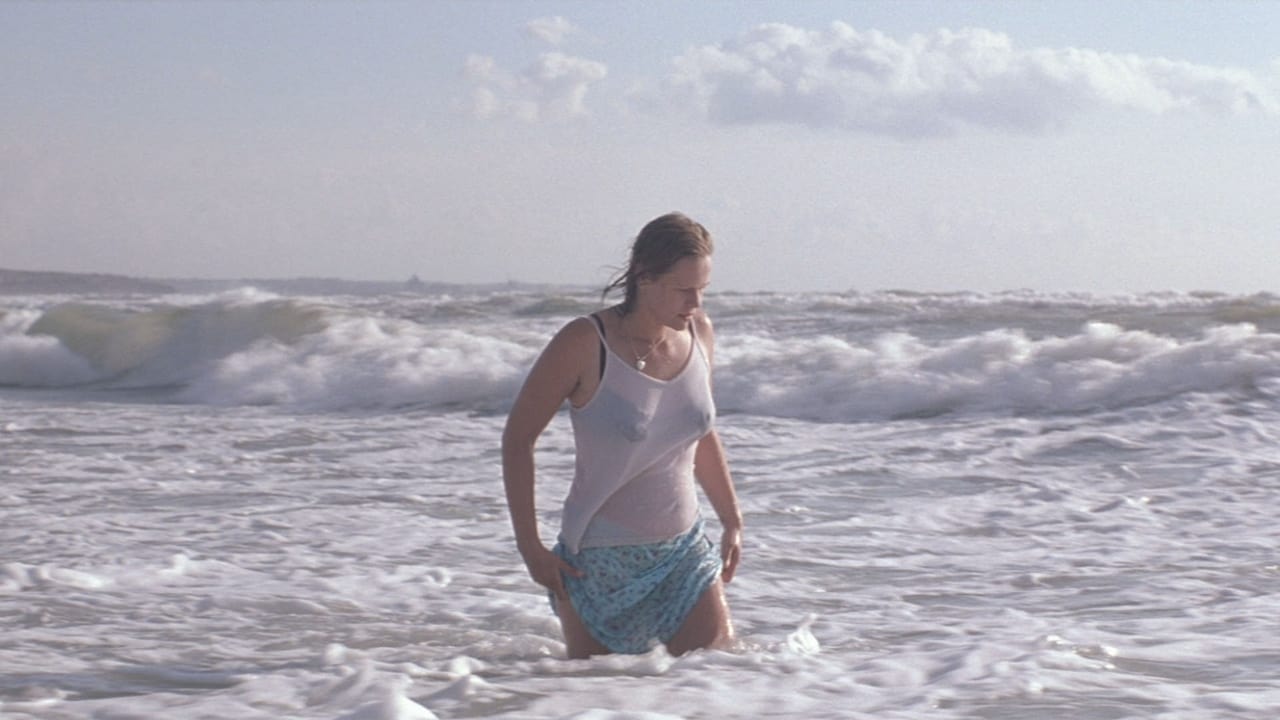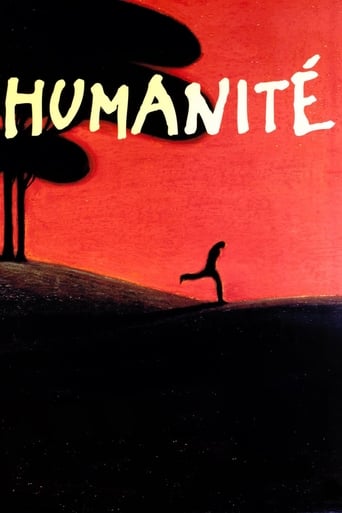



Nice effects though.
It's not great by any means, but it's a pretty good movie that didn't leave me filled with regret for investing time in it.
View MoreMostly, the movie is committed to the value of a good time.
View MoreBlistering performances.
Film not for everyone. Very slow, intimate and deep. With a lot of static camera views allowing you to drift in your thoughts. Character of Pharaon De Winter (Emmanuel Schotté) reminds me about Ingman Bergmans' "From the Life of the Marionettes " Peter Angelmann (Robert Atzorn). They are both very troublesome introverts with effeminate mindset in the world dominated by men, thus creating distortion somewhere deeply in their mind which eventually leads to abnormal behaviour.I do recommend this film to those who enjoy deep psychological and philosophical cinema.
View MoreBruno Dumont is something of a controversial filmmaker, producing singular films that draw on the influence of people like Robert Bresson, Ingmar Bergman and early Michael Haneke in a clear attempt to create an enhanced state of realism that works both for and against the film and the audience. Also, like his contemporaries Gaspar Noé and Carlos Reygadas, it could be argued that Dumont makes films that challenge the viewer to engage with a story that will undoubtedly take us to some very dark and often shockingly immoral places; giving us characters that are morally ambiguous, often loathsome and, in the case of our central protagonist here, almost pitiful. There aren't many filmmakers who would choose as their hero of a bleak detective thriller an innocent man-child who seems to be as socially inept and emotionally damaged as a person could possibly be, and yet, with Police Chief Pharaon De Winter, that is exactly what we get.Dumont makes his bleak, desolate vision obvious right from the start, with the horrendous discovery of a murdered and mutilated child left naked and bleeding in a stark, autumnal field. The image is both shocking and brutal; with Dumont giving us a punch to the stomach right from the very first frame with a lingering close-up of the wound and filleted body parts. It's an image that both establishes and surmises the film as a thematic whole; the loss of innocence being central both with the murder of the child and with the character of Pharaon himself. It is the idea of back-story and the fragile demeanour of Pharaon - and to an extent the evocative performance of non-professional actor Emmanuel Schotte - which anchors the film, giving the audience an emotional spectator. He is also our representation within the film, mirroring the feelings of the audience if not quite our actions. After the aforementioned discovery there are no macho heroics; Pharaon reacts on an emotional level unseen in films of this nature, running back to his car, tears streaming down his face, lost in a kind of detached melancholy that continues throughout the film.Over the course of the film, the narrative continues to unfold at a slow and deliberate pace, though we quickly realise that the real detective story at hand is not necessarily about the murder of the child, but more importantly, what has happened to make Pharaon the way he is. Has Pharaon had some sinister part in all of this, or is he merely a constant observer. The idea of voyeurism is an important one in Dumont's work, with the camera rarely moving; always static, removed from the context of the scene and merely recording things for our benefit. This gives the film a greater degree of realism, though may be a little tiresome for viewers weaned on a more westernised approach to cinema, with one hypnotic scene in particular finding our central protagonist tending his allotment for what seems like the best part of fifteen minutes.As the film continues to unfold, and the clues begin to add up, we realise that this isn't going to have a clear-cut, moralistic ending akin to a routine police/crime thriller. Then again, with a central character who lives at home with a controlling mother, who adores the woman who lives down the street and allows her boyfriend to belittle him at every available opportunity and often stands monosyllabic at the back of a room... how on earth could it? With L'Humanité (1999), Dumont has attempted to create a stripped down, bare-naked form of ambient cinema, in which it is the little character details and passages of silence, broken only by shocking violence and mechanical sex, that go towards creating the story.The ending of the film continues in this same vein and acts as a sort of shocking epiphany, in which every action and subtle line of dialog that has occurred during the epic running time is suddenly given a whole new meaning. Dumont has proved with this, his second feature, that he can reach beyond the tiresome kitchen sink theatrics of his first film, La Vie de Jesus (1997) and incorporate distancing naturalistic techniques (no camera movements, no artificial light, non-professional actors, etc) to create a film that is both horrendous and intoxicating in equal measures. Though enjoy is certainly the wrong word to use with a film this bleak and confrontational, those amongst you who admire the work of forward thinking European auteurs like the aforementioned Michael Haneke, Gaspar Noé and Lars von Trier will certainly admire and appreciate Dumont's shattering tour-de-force.
View MoreThis French oddity from second-time director Bruno Dumont is a masterpiece. Four minutes into the film I was ready to switch it off, but once I'd settled into the rhythm of the film I was transfixed. That took about 20 minutes, and once I'd finished the film I re-watched those first 20 minutes again.A policeman investigates the brutal murder of a young girl in a French town and that's pretty much it. It's even less than that in some respects. For example the girl is found in the opening minutes, but it's 50 minutes before any real investigation begins. Instead it focuses on the policeman (Pharaon) and his two friends (lovers Domino and Joseph). They go to the beach, to a restaurant, stand outside their houses having stunted conversations and generally wasting the day away. Pharaon goes for a bicycle ride and tends to his allotment. Essentially nothing happens. There are maybe four or five actual plot points altogether, and the rest is filled with chat of the "Hi, how are you?" variety, long shots of people walking or driving, or opening doors. The entire film follows a kind of rhythmic cycle that becomes hypnotic if you allow it.Which brings us to the actors. The DVD notes say they're all non-professionals. Not amateur actors, but real people who are acting for the first time. The actor who plays Joseph does reasonably well, but Domino is excellent (and it's an extremely brave performance for any actress).Emmanuel Schotte (as Pharaon) is amazing. It's simply one of the greatest performances I've ever seen. Imagine Travis Bickle with 99pc of the anger taken out. Then cross him with Forrest Gump (with non of Hanks' caricature or comedy). Cast a non-actor who looks like a cross between Clive Owen and Alfred Molina and you're somewhere close. He's a very unlikely cop. He's wide-eyed, innocent, and simple. He's slow and deliberate. Brief comments from other characters tell us his wife and child died two years ago, and he looks like a man still stunned, as if he'd just heard the news. This is never hinted at once; we don't ever see what he was like before, no one ever tells him "You've changed", but the audience gets the feeling this is a man suffering desperately from the pain of grief. Most of this is expressed in Schotte's eyes which are desperately sad.This low-key little film requires patience. Without Schotte's performance I don't think there'd be much of a film here. Be prepared for an extremely slow film, but one that's never boring. It will polarise opinion like few other films I've seen so I can't recommend it to everyone (and there are some very graphic sex scenes), but I thought it was amazing.
View MoreThere are good films and there are bad films. Sometimes it looks as if good and bad are only measured subjectively. Since film is art, and since there are no "laws of art", but aesthetic tastes involved, one is tempted to agree. However, this is not quite true. There are films that managed to hurt the feeling of viewers not because of their lack of quality, but because of their inconvenience. They force the viewer to see things differently, to think a bit more, to say good-bye to the usual, traditional, uninspiring, superficial entertainment they are used to. Sometimes, people will learn from these challenges what films can also be they are taught to appreciate films in a different manner, and they are thankful for the experience. But some viewers dislike being challenged. They want to see the breaking-up of traditional; they don't want to be intellectually involved. They have certain expectations, and they like being disappointed. Which is why they are angry at these particular films. For them, abandoning the usual patterns is like being forced out of their homes. Thus they strike back: They call the film rubbish, boring, stupid. It's less likely that they will say: It's too different to be liked; I don't want differences. Rather, they conclude that their personal taste which is, after all, also the taste of the "majority" is the "right" taste to have. Films that don't fit can't be so good. No doubt bad films exist. "L'Humanité" is not one of them. It's a challenge, but it will only work if what you ask of cinema is more than just being entertained for the moment. If you want a fast and furious dinner of the usual, don't bother to watch. This is a philosophical way of movie-making, designed only for very few people. Like all great films, it will find it's audience and remain. Unlike the bulk of average films, it inevitably also finds it's enemies. However, this is nothing to worry about. Depending on who dislikes it, it is rather a sign of quality.
View More